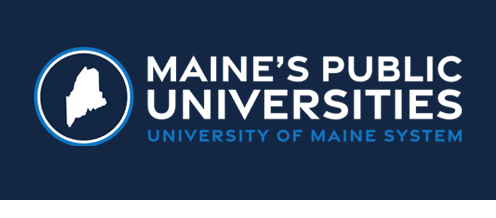UMS Micro-Credential Development & Implementation Mini-Grants
Congratulations to these mini-grant recipients:
2021-22 Mini-Grant Call for Proposals – Note: The deadline for this opportunity has passed, please check back for more opportunities!
Description:
The UMS Micro-Credential Steering Committee is pleased to announce the availability of a mini-grant opportunity to develop and implement University of Maine micro-credentials, in targeted topic areas, that address workforce development needs in Maine. The priority topic areas come from several reports and plans including:
- The Maine Economic Development Strategy: A Focus on Talent and Innovation, 2020-2029 (Economic Development Strategy – External Link)
- Governor’s Economic Recovery Committee Recommendations to Sustain and Grow Maine’s Economy (Recovery Plan – External Link)
Workforce/Economic Development Micro-Credential Pathways include employer partnerships (at Level 3 or earlier). These pathways include the skills and competencies desired by employers in order to upskill or reskill employees and/or to offer training and work-based opportunities to increase learners’ employability.
Mini-Grants will be awarded to UMS teams of faculty/staff collaborating on the development and implementation of UMS micro-credentials. The grant maximum is $10,000.
Choose from the following topic areas:
- Renewable/Clean Energy/Climate Change Environmental Sustainability (Recovery Plan; Eco Dev strategy)
- Business/E-Commerce/Creative Economy (Recovery Plan – New Businesses)
- Diversity, Equity, and Inclusion in Businesses (Recovery Plan)
- Teacher Education, early childhood and other Professional Development (Recovery Plan)
- Entrepreneurship (Recovery Plan)
- Innovation in key industry sectors (e.g., Health Care*, Aquaculture (beyond the one developed), Agriculture, Forestry, Manufacturing, Marine Sciences, Biological and Life Sciences, etc.) (Recovery Plan, Eco Dev strategy)
Other topic areas may be considered with a strong workforce development justification and appropriate Maine labor market data.
NOTE*: Health Care micro-credentials can be proposed, but they must align with known, ongoing statewide efforts.
Eligibility:
Please contact ums.mc@maine.edu for questions about future opportunities!.
Requirements:
- The micro-credential must aid workforce/economic development in Maine
- There must be collaboration across the UMS: a). A team of UMS Faculty/Staff collaborators from more than one UMS university (You may also include students and employers); and/or b). If collaborators cannot be located across the UMS (e.g., the topic is unique to one campus), the micro-credential must be open and available to learners across the UMS (e.g., offered online).
- The UMS Framework and guidelines must be followed. A complete micro-credential pathway (three levels and macro-badge) must be developed. Embedded micro-badges may also be developed. Visit the website for more information about the UMS Framework.
- Micro-credentials must assess learner skills/competencies and specify assessments and standards for evaluating those competencies. (Learners will be issued badges only after demonstrating the competency standards indicated).
- If selected, team members must complete required training. The training will help grantees develop the micro-credential and meet all requirements.
- Selected teams must meet the training deadlines for submissions of documents/tasks throughout the Fall 2021 and Spring 2022 semesters (touchpoints).
Timeline:
Fall 2021: Development Team is established; Training is completed; Draft of micro-credential meta-data is approved (a template is provided); Preparation for Spring implementation is completed.
Spring 2022: Implement and issue the first badges. Submit the report.
How to Apply:
Submit proposals by October 15, 2021. Please note, this deadline has now passed.
Selection Criteria:
Proposals will be evaluated based on how well the following areas are addressed:
- Clear rationale explaining the tie to workforce and economic development goals: Does the proposal identify and address one of the priority topic areas or does it give a strong workforce/economic development rationale for inclusion? Does the proposal clearly articulate a workforce development need with labor market facts/statistics?
- Does the proposal articulate a competency-based approach (e.g., needed industry skills/competencies)?
- Clear rationale for the potential benefits to learners and employers: Does the proposal specify the targeted learners and clearly articulate the potential benefits to those learners and appropriate employers?
- Clear budget rationale: Does the proposal include a clear budget rationale that adequately supports the project? Budget items may include (but are not limited to): Faculty/Staff time for micro-credential development; instructional design support; and focus group organization. Course-release cannot be included.
Notification of Awards:
All applicants can expect to be notified by October 22, 2021.
Outcome Assessment:
Awardees will submit a brief report by May 30, 2022. The team will be asked to participate in an outcomes study and may be called upon to provide testimonials. Details will be sent at the end of the Spring 2022 semester.
Questions?
Please contact ums.mc@maine.edu for questions about future opportunities!
